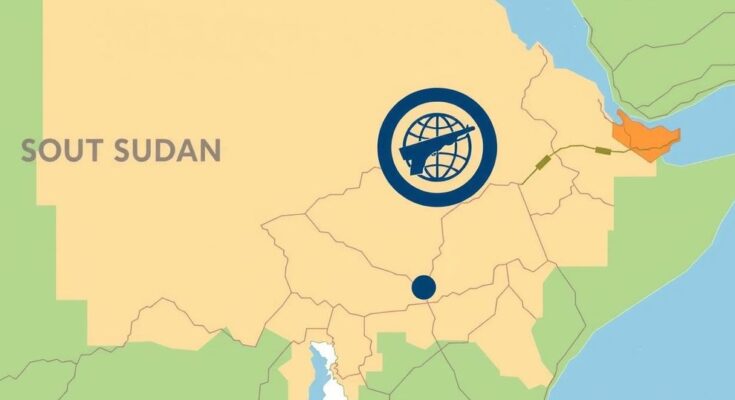The NRM parliamentary caucus in Uganda has approved the deployment of troops to South Sudan to restore stability amidst escalating violence between rival factions. The decision, supported by President Yoweri Museveni, emphasizes constitutional adherence and regional security. The UPDF’s swift action follows a government request to address deteriorating conditions, raising discussions on parliamentary consent regarding military interventions.
The parliamentary caucus of Uganda’s ruling National Resistance Movement (NRM) has approved the deployment of Ugandan troops to South Sudan, viewing it as essential for restoring stability in the war-torn nation. This decision was reached during a meeting led by President Yoweri Museveni at the State House in Entebbe.
Recent escalations between forces loyal to South Sudanese President Salva Kiir and First Vice President Riek Machar have intensified conflict, following an incident where militias aligned with Machar captured Nasir, resulting in numerous fatalities, including the death of a commander from the South Sudan People’s Defence Forces (SSPDF).
In response to the violence, Kiir’s administration has increased its crackdown on allies of Machar, leading to the detention of significant figures, including the Petroleum Minister and senior military officials connected to Machar. Such actions have heightened concerns regarding the fragile 2018 peace accord that concluded a five-year civil war.
A statement co-signed by Government Chief Whip Hamson Obua reaffirmed that the Uganda People’s Defence Forces (UPDF) deployment is consistent with Uganda’s constitutional mandates. The caucus’s statement emphasized their support by stating, “We hereby resolve to support the deployment of the UPDF in South Sudan as a necessary intervention for peace enforcement.”
Moreover, the NRM caucus advocates for parliamentary approval of the deployment, adhering to constitutional guidelines. This announcement follows recent questions from lawmakers regarding the UPDF’s presence in South Sudan, with Defence Minister Jacob Oboth Oboth initially confessing ignorance regarding the deployment despite reports of troops arriving in Juba.
Colonel Chris Magezi of the UPDF clarified in a statement on social media that the deployment was a direct response to a request from South Sudan’s government to manage a deteriorating security situation, highlighting it as crucial for regional stability. Magezi remarked, “The UPDF acted decisively on the request of the government of South Sudan to avert a dangerously developing situation.”
The deployment has sparked discussion within Uganda, especially regarding the lack of prior parliamentary consent. However, the NRM caucus insists that this action is vital for the overarching stability of the region. Since gaining independence from Sudan in 2011, South Sudan has endured persistent internal strife, which Uganda has historically intervened in during critical moments, such as their previous military presence in Juba during the initial civil conflict in 2013.
The endorsement by Uganda’s NRM parliamentary caucus for UPDF troops to be deployed in South Sudan emphasizes the need for intervention in response to escalating violence and instability. With historical ties, Uganda’s involvement signals a reinforced commitment to regional stability, despite concerns over legislative approval processes surrounding military actions. As tensions continue, the situation in South Sudan remains precarious, necessitating vigilant oversight and international attention.
Original Source: www.radiotamazuj.org




